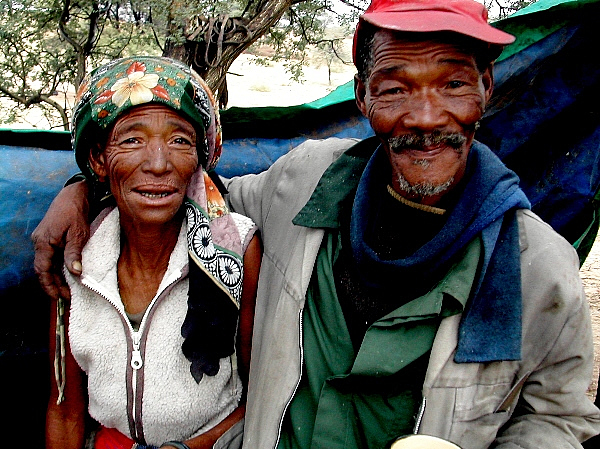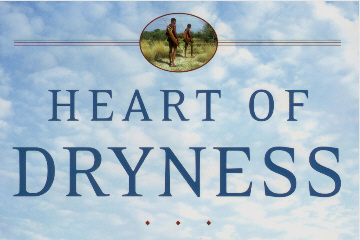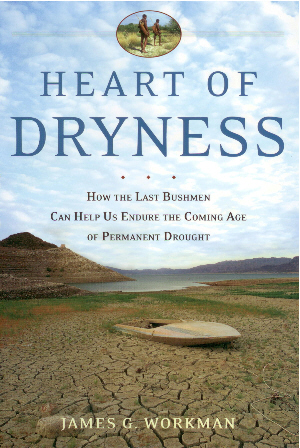
All photos courtesy of author James Workman.
“Some Bushmen told me that if you listen carefully your can hear the stars, and one night in the Kalahari silence it seemed possible.”
-from Heart of Dryness by James Workman
This is the only book I’ve ever read that made me thirsty. It made me conscious of the glass of water on my nightstand, of where that water came from, and of the water I flushed down the toilet so many times that day.

